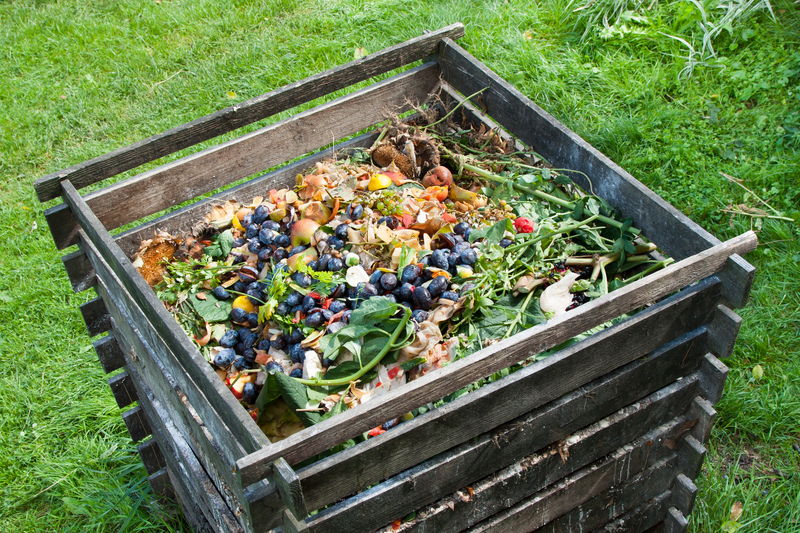Top Tips for Saving Money When Dealing with Bulky Waste Items
Disposing of old furniture, appliances, or any large unwanted belongings can be a daunting--and sometimes expensive--process. *Bulky waste items* such as mattresses, sofas, refrigerators, and construction debris pose logistical challenges for homeowners, landlords, and renters alike. Fortunately, with a little planning and some smart money-saving strategies, you can minimize your costs while getting rid of large, unwanted items in an environmentally friendly way. Dive into our comprehensive guide filled with top tips for saving money when handling bulky refuse, ensuring your home stays tidy--and your wallet, happy.
Understanding Bulky Waste: What Is It?
Before you start strategizing your disposal, it's essential to know what constitutes bulky waste. In most municipalities, bulky waste (sometimes called large waste or bulk rubbish) refers to items that are too large to fit in a regular curbside bin. Examples include:
- Furniture: sofas, armchairs, wardrobes
- Appliances: fridges, washing machines, ovens
- Mattresses and bed frames
- Large electronics: old TVs, computers
- Carpet and flooring
- Yard debris: branches, logs (depending on local rules)
Dealing with bulky waste efficiently often comes down to understanding your disposal options and knowing how to avoid unnecessary fees.

Why Bulky Waste Disposal Can Be Expensive
Many homeowners are surprised at the costs involved in getting rid of large items. This is because specialized handling, transportation, and disposal fees are often required. Factors that typically drive up bulky waste disposal costs include:
- Hiring private collection services
- Fees for landfill or transfer stations
- Charges for specific materials, such as electronics or white goods
- Transportation and labor fees
Want to minimize your bulky waste disposal expenses? Keep reading for the best cost-effective tips and clever alternatives.
1. Use Municipal Bulky Waste Collections
Many local councils or municipalities offer free or low-cost bulky waste collection services. These services often have certain restrictions: you may be limited to a number of items per year, or scheduled on specific collection dates.
How to Maximize Savings:
- Check your local council's website or call the public works department for information.
- Schedule your pickup well in advance, especially if demand is high.
- Follow guidelines closely to avoid fines (e.g., separating electronics or hazardous materials).
- Combine waste with your neighbors to save on collective pickups.
2. Donate or Give Away Usable Items
One person's trash may be another's treasure! Donating items not only saves you disposal costs but also helps reduce landfill waste.
Where to Donate or Gift Bulky Waste:
- Charity shops and non-profits often accept gently used furniture and appliances.
- Online platforms such as Freecycle or Facebook Marketplace are excellent for gifting items locally.
- Community groups and churches may accept working appliances or furniture.
*Tip: Always contact organizations first to check conditions and arrange pickup to save time and transportation costs.*
3. Sell Items Before Disposing
If your bulky items are still in good condition, why not try to sell them? Not only do you save on disposal fees, but you can earn a little extra cash as well.
Platforms to Sell Bulky Items:
- Online classifieds: Craigslist, Facebook Marketplace, Gumtree
- Garage sales or community swap meets
- Specialist resale shops (vintage furniture, appliance stores, etc.)
Set realistic prices and include clear photos--buyers may even be willing to pick up the item themselves, saving you hassle and transportation costs.
4. Repurpose or Upcycle Bulky Waste
Before calling a removal service, consider whether your bulky waste item can have a second life. Upcycling is a creative, eco-friendly way to turn old furniture or appliances into stylish home decor or useful objects.
Upcycling Ideas:
- Convert an old wooden door into a headboard or coffee table.
- Transform a broken dresser into unique storage pieces.
- Repurpose pallets into garden planters or outdoor furniture.
This approach can save you disposal costs and even add value to your home.
5. DIY Bulky Waste Transportation
Hiring a private removal company can be expensive. If you have access to a suitable vehicle (like a pickup truck or van), transporting bulky waste to the local transfer station or recycling center yourself can save money.
How to Make DIY Disposal Affordable:
- Borrow or rent a vehicle, or team up with neighbors to share transport and costs.
- Check tipping fees: many recycling centers reduce charges if you pre-sort materials or dispose during off-peak hours.
- Ask about free disposal days or community clean-up events, which often waive fees for residents.
6. Utilize Retailer Take-Back Programs
Some retailers and manufacturers offer take-back programs when you purchase a new bulky item. For example, appliance or furniture stores may pick up your old item when delivering your new purchase.
Tips for Take-Back Savings:
- Ask about free old-item removal when purchasing a replacement.
- Check the retailer's return policies before delivery; some charge a fee, others don't.
Using a take-back service can be more affordable and convenient than arranging disposal separately.
7. Recycle Appropriately
Recycling bulky waste is not only eco-friendly but can also save you money, as certain materials (like scrap metal or e-waste) might even have redeemable value.
Recycling Tips:
- Sort items by material: metals, wood, electronics, and plastics often have different recycling rules.
- Locate your nearest certified bulky waste recycling center.
- Contact local scrap yards or e-waste recyclers who may pay for specific items.
- Consider community recycling events, which can offer lower or zero-cost drop-off opportunities.
8. Limit Bulky Waste Generation
Prevention is always cheaper than cure! Avoid accumulating unnecessary bulky waste by making wiser purchasing decisions and maintaining items so they last longer.
Smart Prevention Strategies:
- Invest in multi-purpose furniture and modular designs that adapt to your needs.
- Repair and maintain items rather than replacing them at the first sign of wear.
- Rent or borrow items (ladders, large garden equipment) instead of buying.
9. Group Disposal with Neighbors or Community
If you and others on your street or building have bulky waste, consider organizing a group disposal event. Bulk pickups are often far cheaper per household and may be eligible for discounts from private waste contractors.
- Coordinate with neighbors or your local HOA (Homeowners' Association).
- Negotiate a group rate with a licensed hauler.
- Plan pickups after big events (large move-outs, street clean-ups) to maximize participation.
10. Compare Quotes from Private Haulers
When professional help is needed, always compare several quotes from waste removal companies. Prices can vary dramatically, so don't settle for the first offer.
What to Look Out For:
- Transparent pricing--be wary of hidden fees.
- Proper licensing and insurance (ask for proof).
- Environmental credentials (do they donate or recycle items where possible?)
- Customer reviews and ratings.
Additional Cost-Saving Tips for Bulky Waste Management
- Time your disposal: Some municipalities rotate free pickup dates--plan your clear-out accordingly.
- Use council tips efficiently: Splitting loads, pre-sorting, and maximizing vehicle space can reduce the number of trips.
- Utilize local community grants: Certain areas offer small subsidies for residents disposing of specific bulky items responsibly.

Common Questions and Mistakes to Avoid
Is it illegal to dump bulky waste on the street?
Yes--illegal dumping (fly-tipping) can result in substantial fines. Always use legal disposal routes.
Can I burn bulky waste items?
In most areas, burning bulky waste is not permitted, especially with materials like mattresses or electronics, due to serious health and environmental risks.
Will scraping or breaking items save money?
Sometimes dismantling large items can reduce disposal fees if you separate recyclable components. Always check first with your local facility for their policies.
Conclusion
Dealing with bulky waste doesn't have to drain your bank account or burden the environment. From donating, selling, and upcycling to utilizing low-cost municipal services, there are many ways to handle large items wisely and affordably. By following these top tips for saving money when dealing with bulky waste items, you can keep your living space clear, your community clean, and your wallet intact. Always plan ahead, explore all your options, and make the most of the resources available to you. Your next clear-out will be both eco-friendly and cost-effective!
Ready to start saving money on bulky waste disposal? Use these strategies today and experience hassle-free, sustainable, and budget-smart bulky waste solutions!
